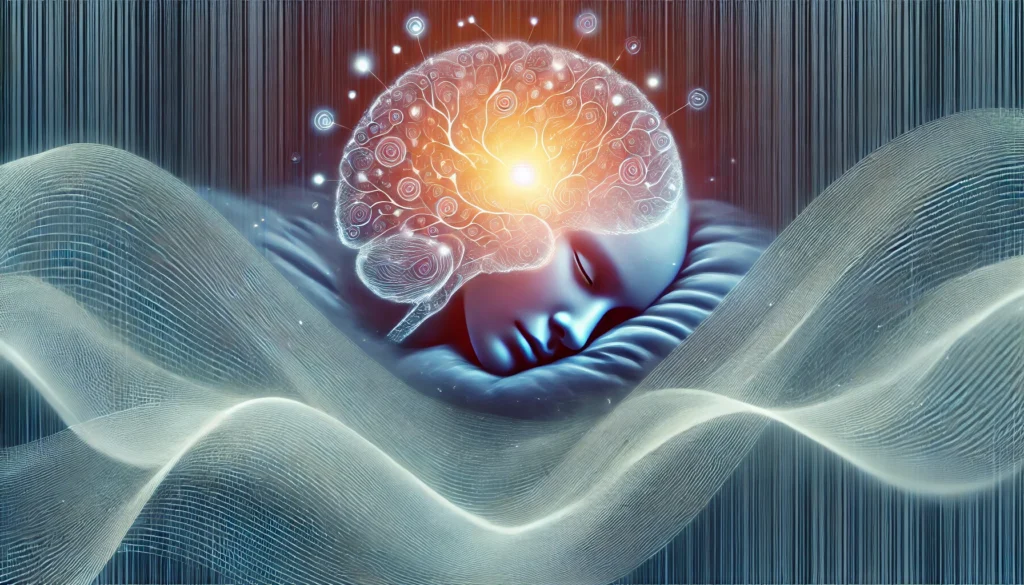Does sleep help us conserve energy? This question is pivotal for understanding the biological significance of sleep, especially in an era where productivity and vitality are prized. Sleep is often viewed as a passive state, but beneath the surface, the body engages in intricate processes to restore, rejuvenate, and conserve energy. By exploring the connections between sleep, energy conservation, and enhanced focus, this article delves into the fascinating science of how sleep influences our vitality.
Energy conservation has been proposed as one of the evolutionary reasons for sleep. While the metabolic energy saved during sleep is modest, the implications for brain function, physical recovery, and overall vitality are profound. Furthermore, understanding the mechanisms of how sleeping gives you energy provides actionable insights for optimizing focus and productivity.
In this article, we will examine how sleep impacts energy conservation, explore the biological processes involved, and uncover practical ways to harness the power of sleep for a more focused and energetic life.
You May Also Like: Why Do We Sleep? Exploring the Importance of Rest for Optimal Focus and Performance
The Evolutionary Purpose of Sleep: Energy Conservation
From an evolutionary perspective, sleep is a behavior shared by almost all animals, despite its apparent risks of vulnerability. One compelling theory is that sleep evolved as a means of conserving energy during periods when activity would be less advantageous, such as nighttime for diurnal species.
Research has shown that metabolic rates drop during sleep, leading to reduced energy expenditure. Studies estimate that humans conserve about 10% of their daily caloric intake during sleep (Siegel, 2005). This might seem small, but over evolutionary timescales, such savings could provide a significant survival advantage.
Moreover, sleep’s impact on brain metabolism is especially significant. During non-REM sleep, the brain’s energy demands decrease, allowing resources to be allocated to essential maintenance functions, such as cellular repair and memory consolidation. REM sleep, although metabolically active, serves crucial roles in emotional regulation and cognitive function, thereby supporting overall energy efficiency in waking life.
How Sleep Conserves Energy at the Cellular Level
On a cellular level, sleep enables energy conservation through several mechanisms:
- Reduction in Basal Metabolic Rate (BMR): The body’s metabolic rate drops during non-REM sleep due to decreased activity in the sympathetic nervous system and a reduction in core body temperature.
- ATP Replenishment: Adenosine triphosphate (ATP), the body’s primary energy currency, is replenished during deep sleep. This replenishment is essential for sustaining energy levels during wakefulness.
- Glymphatic System Activation: During sleep, the glymphatic system—a network of channels in the brain—removes metabolic waste products, including beta-amyloid, a protein associated with Alzheimer’s disease. This process not only enhances brain function but also reduces the energy burden of managing waste during the day.
- Hormonal Regulation: Sleep regulates hormones such as growth hormone and cortisol, which play vital roles in energy metabolism. Growth hormone, secreted during deep sleep, stimulates tissue repair and muscle growth, conserving energy that would otherwise be spent on healing during the day.
These processes illustrate how sleep’s restorative functions underpin energy conservation, laying the groundwork for optimal focus and vitality during waking hours.
Does Sleeping Give You Energy? The Science of Restoration
One of the most common observations is that a good night’s sleep leaves us feeling refreshed and energized. But how exactly does sleeping give you energy? The answer lies in the interplay of physiological restoration and neural optimization.
Restoring Physical Energy
During sleep, the body shifts its focus from external activities to internal maintenance. Protein synthesis increases, promoting muscle repair and growth. Glycogen stores in the liver and muscles are replenished, providing a readily available energy source for the day ahead.
In addition, the immune system becomes more active during sleep, combating inflammation and repairing cellular damage. This immune activity reduces energy-draining chronic inflammation, contributing to a feeling of physical vitality.
Enhancing Cognitive Energy
Sleep is equally essential for mental energy. During REM sleep, the brain organizes and consolidates memories, enhancing learning and problem-solving abilities. This neural optimization ensures that cognitive resources are readily available for focus and productivity.
Sleep also regulates neurotransmitter levels, such as serotonin and dopamine, which influence mood, motivation, and alertness. The recalibration of these chemicals during sleep sets the stage for a focused and energized state upon waking.

The Role of Sleep Stages in Energy Conservation
Sleep is not a uniform state but consists of multiple stages, each contributing uniquely to energy conservation and restoration. These stages include non-REM sleep (stages 1, 2, and 3) and REM sleep, cycling in 90-minute intervals throughout the night.
Non-REM Sleep: The Energy Saver
- Stage 1: The transition from wakefulness to sleep involves a slight decrease in brain activity and energy consumption.
- Stage 2: This stage features a further reduction in metabolic activity, along with the occurrence of sleep spindles and K-complexes, which are believed to protect and optimize brain energy use.
- Stage 3 (Deep Sleep): Deep sleep is the most restorative stage, characterized by slow delta brain waves. During this stage, the body’s metabolic rate is at its lowest, and growth hormone is secreted, promoting cellular repair and energy conservation.
REM Sleep: The Neural Optimizer
Although REM sleep is metabolically active, it plays a crucial role in optimizing cognitive energy. REM sleep supports emotional regulation, memory consolidation, and creativity, all of which are essential for maintaining focus and productivity.
By cycling through these stages, the body and brain achieve a balance of energy conservation and restoration, ensuring readiness for the demands of the day.
Is Resting Without Sleeping Beneficial?
While sleep is unparalleled in its restorative capabilities, resting without sleeping can still provide energy benefits. Restful activities, such as meditation, deep breathing, or simply lying down, activate the parasympathetic nervous system, promoting relaxation and reducing energy expenditure.
The Benefits of Rest Without Sleep
- Reduces Stress: Rest lowers cortisol levels, reducing the energy drain associated with chronic stress.
- Improves Circulation: Relaxation increases blood flow to muscles and organs, enhancing nutrient delivery and waste removal.
- Enhances Mental Clarity: Rest can provide a mental reset, improving focus and decision-making even in the absence of sleep.
However, it is important to note that resting without sleeping cannot fully replace the physiological processes of sleep, such as glymphatic system activation and hormonal regulation. Rest can complement sleep but should not be viewed as a substitute.
Optimizing Sleep for Energy Conservation and Focus
Given the profound impact of sleep on energy conservation and vitality, optimizing sleep habits is essential for achieving peak performance. Here are some evidence-based strategies to enhance sleep quality:
- Maintain a Consistent Sleep Schedule: Going to bed and waking up at the same time each day reinforces the body’s circadian rhythm, improving sleep efficiency.
- Create a Sleep-Conducive Environment: A dark, quiet, and cool bedroom minimizes disruptions and promotes deep sleep.
- Limit Stimulants: Avoid caffeine and nicotine in the hours leading up to bedtime, as they can interfere with sleep onset and quality.
- Practice Relaxation Techniques: Activities such as yoga, meditation, or reading before bed can calm the mind and prepare the body for sleep.
- Prioritize Physical Activity: Regular exercise enhances sleep quality by reducing stress and promoting the release of sleep-inducing hormones.
By adopting these practices, individuals can maximize the restorative benefits of sleep, unlocking greater focus and vitality.
The Future of Sleep Science: Harnessing Its Full Potential
Advances in sleep research continue to shed light on its multifaceted role in energy conservation and overall health. Emerging technologies, such as wearable devices and sleep-tracking apps, provide real-time insights into sleep patterns, enabling personalized interventions for improved sleep quality.
Furthermore, the development of targeted therapies for sleep disorders, such as insomnia and sleep apnea, holds promise for enhancing the restorative power of sleep. These advancements underscore the importance of prioritizing sleep as a cornerstone of health and productivity.

Conclusion: The Energizing Power of Sleep
Does sleep help us conserve energy? Undoubtedly, sleep is a vital process that balances energy conservation with restoration, ensuring both physical and cognitive vitality. Through its intricate physiological and neural mechanisms, sleep replenishes energy reserves, repairs cellular damage, and optimizes brain function, providing a foundation for focus and productivity.
Understanding the science of how sleeping gives you energy empowers individuals to make informed choices about their sleep habits. By prioritizing sleep and incorporating strategies to enhance its quality, it is possible to unlock its full potential for improved focus, resilience, and overall well-being. Embrace the power of sleep as an indispensable ally in achieving vitality and success.
Further Reading:
Harvard Health Publishing: How sleep boosts your energy
Time: Why Sleep Is the Key to Living Longer
Verywell Mind: How Sleep Can Affect Your Longevity
American Psychological Association: Why sleep is important
New York Post: These 6 things are draining men of their energy and vitality — Here’s how you can get it back
Important Note: The information contained in this article is for general informational purposes only, and should not be construed as health or medical advice, nor is it intended to diagnose, prevent, treat, or cure any disease or health condition. Before embarking on any diet, fitness regimen, or program of nutritional supplementation, it is advisable to consult your healthcare professional in order to determine its safety and probable efficacy in terms of your individual state of health.
Regarding Nutritional Supplements Or Other Non-Prescription Health Products: If any nutritional supplements or other non-prescription health products are mentioned in the foregoing article, any claims or statements made about them have not been evaluated by the U.S. Food and Drug Administration, and such nutritional supplements or other health products are not intended to diagnose, treat, cure, or prevent any disease.


